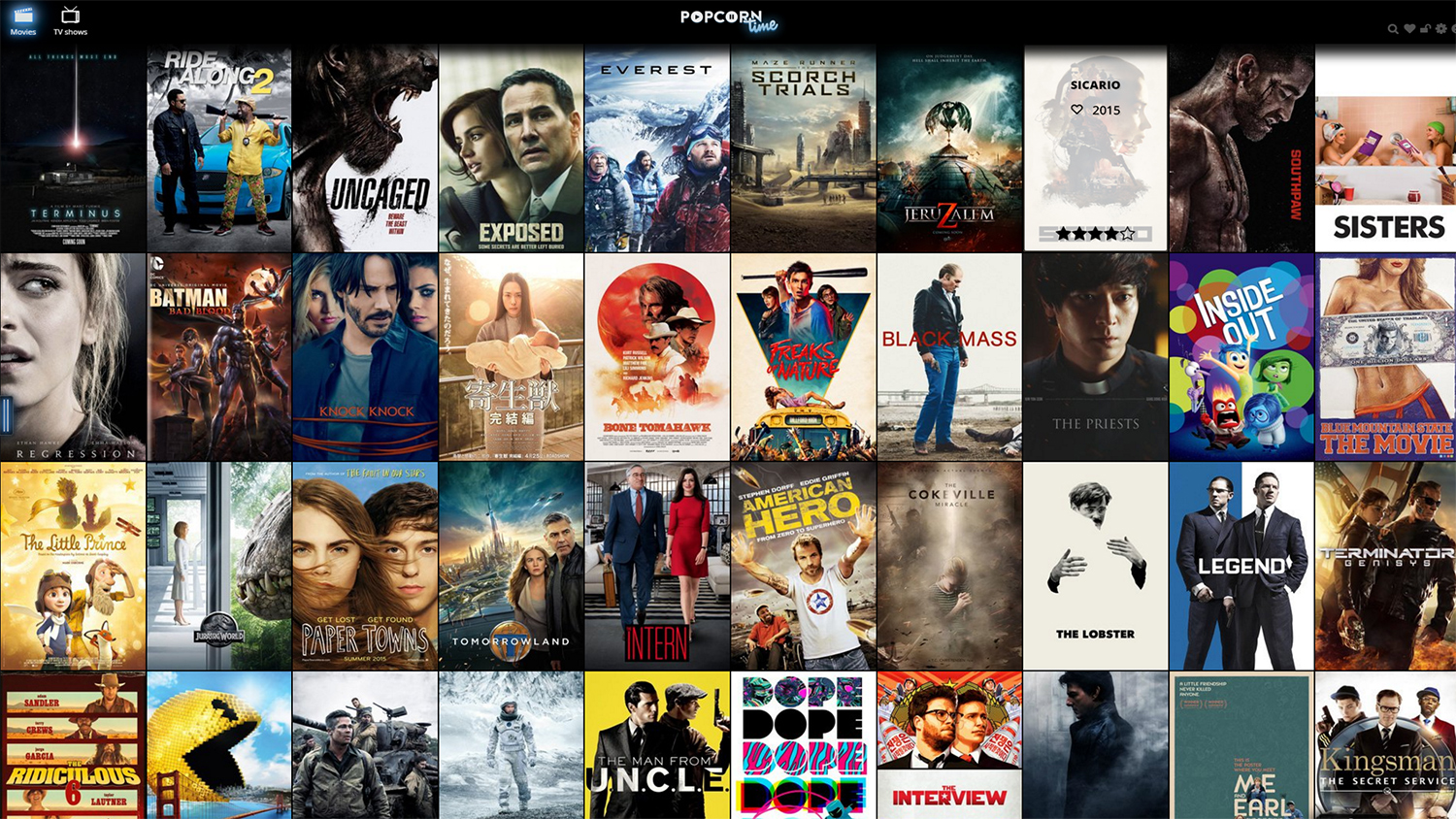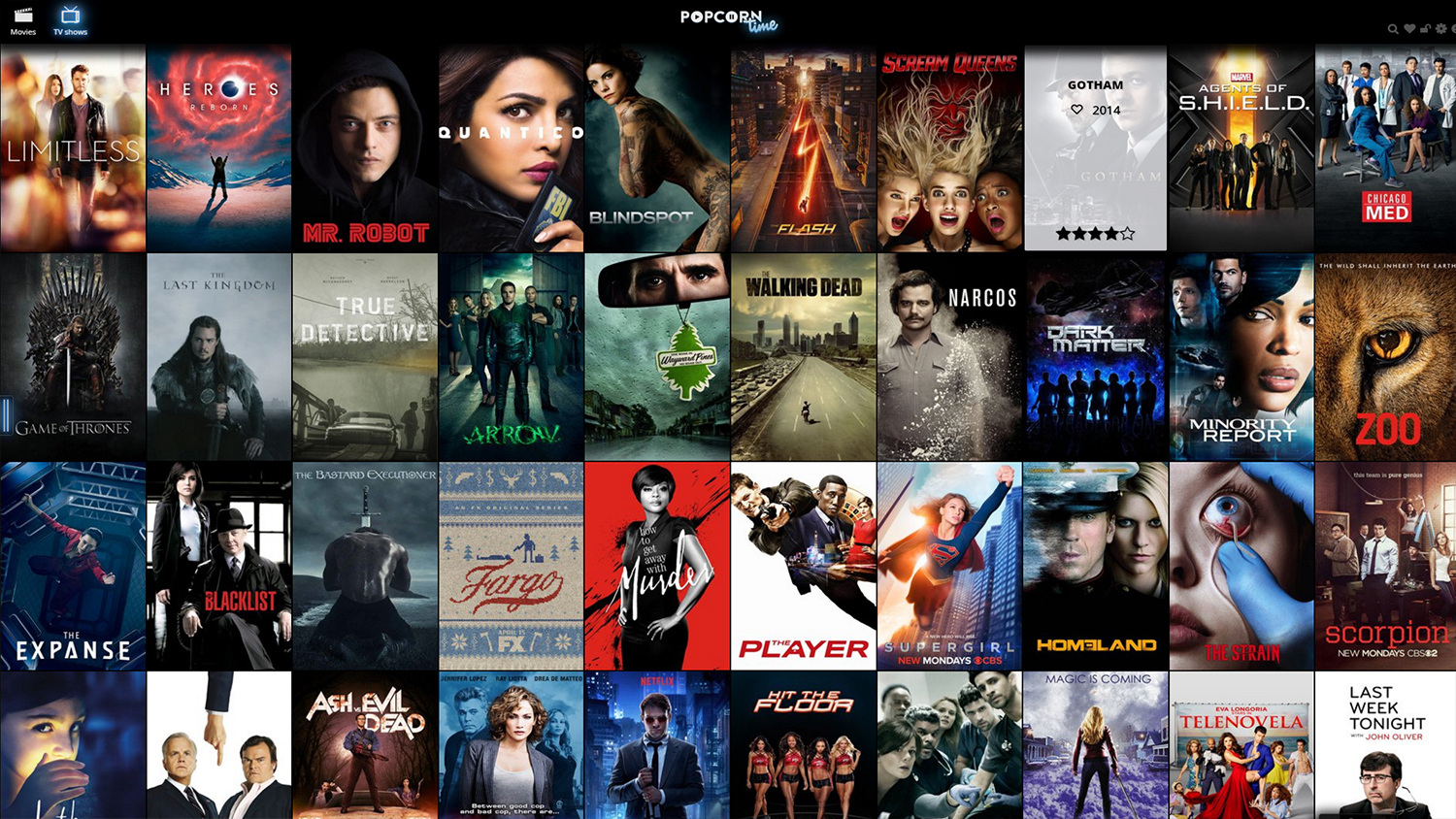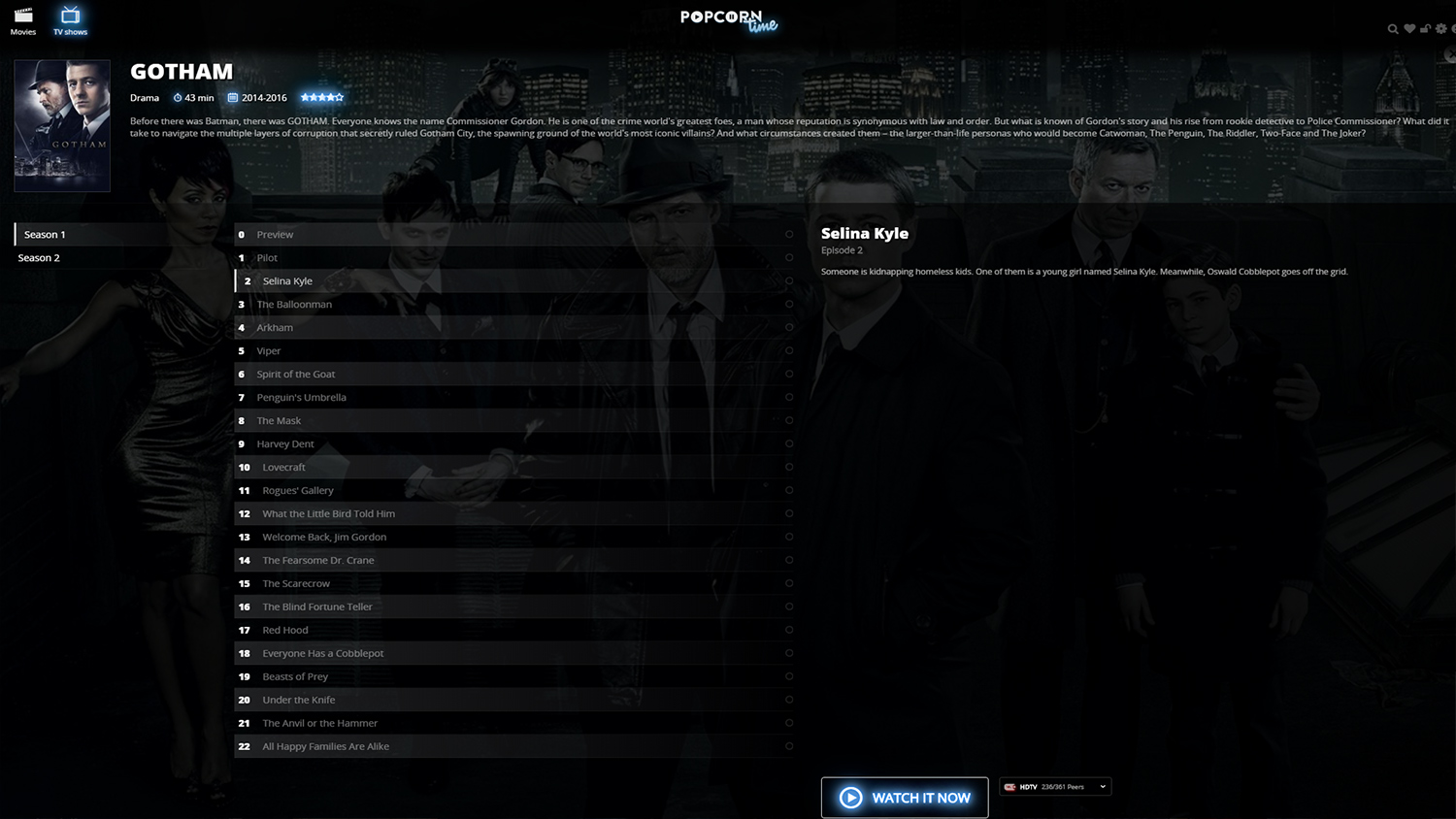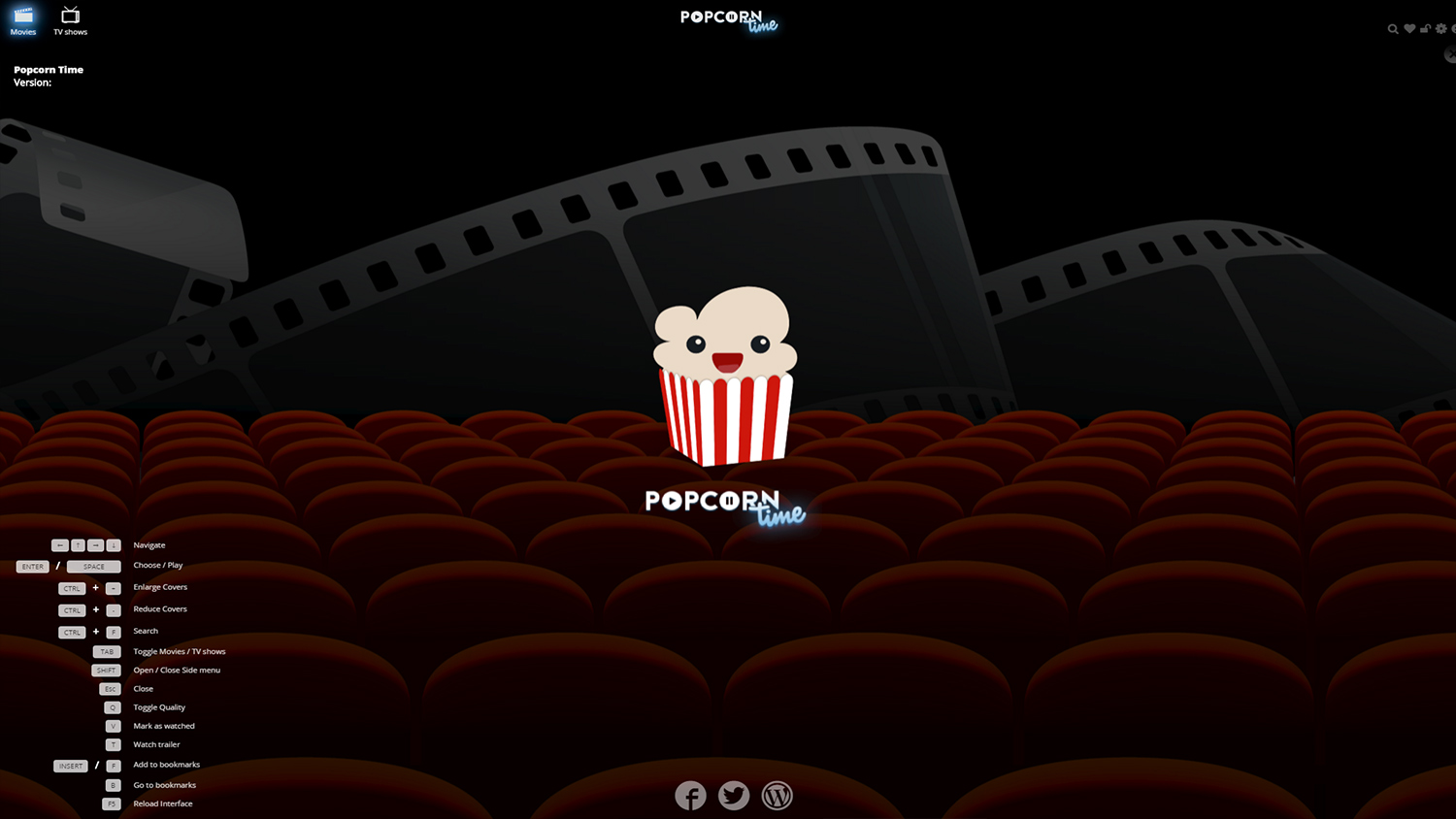
If you’re not familiar, Popcorn Time was a streaming entertainment platform that looked a lot like Netflix to the end-user, but in reality was a sort of front for a torrent system. In other words, Popcorn Time made what many consider an illegal activity — downloading copy-protected content — look as legit as streaming Netflix.
Popcorn Time had its fair shares of ups and downs, ultimately splitting into various “forks” as one site or platform after another was shut down. Still, through its various branches, Popcorn Time enjoyed a fairly long run until, just a few months ago, its most popular offshoot, IO (popcorntime.io), went dark amid internal confusion over whether it was going legit or not. At the time, the platform looked to be all but dead.
“Netflix is being blackmailed by the Hollywood content monopolies.”
But now Popcorn Time is back, this time eschewing dedicated apps for the relative comfort of web browsers. This version of the service uses a browser plugin called Torrents Time to allow users to stream movies and TV shows by interacting with a remarkably simple browse-and-click interface. As of now, the platform is compatible with Windows PCs and Macs, and is open source, clearing a path for anyone to step in and create their own versions. The new version doesn’t appear to work with Firefox on a Mac, and Safari won’t get support until sometime in March, according to an initial statement that went out to members of the press. And, at least for now, there are no plans for a mobile app version.
It’s not clear who is running the show for this reincarnation, considering that previous developers were reportedly working on a legal version of the service called Butter Project, which has been radio silent since October. But this being an open source, entirely browser-based project, it’s a reasonable assumption it is supported by a a fluid group located in multiple geographies.
To learn more, Digital Trends corresponded with a spokesperson over email, who answered questions on condition of anonymity.
A mouthpiece for the defiant
Our source says that Torrent Time is a “powerful technology” and that it simplifies streaming almost every video format “smoothly and with stunning quality that has never been seen before.” Streaming on Popcorn Time before proved to be risky; some users were issued notices to pay a fine for streaming a movie or show illegally, and the Motion Picture Association of America (MPAA) filed suit in Canada and New Zealand to shut the service down.
To avoid entanglements, Previous Popcorn Time forks advised users to employ VPNs (virtual private networks) to mask their IP addresses and evade any civil action. Some VPN services specifically refuse to function with any active torrent traffic, whereas others operate with no such restrictions. The most widely suggested option was Anonymous VPN, which our source told us is still a good idea.
“Unfortunately, we need to recommend users to use a VPN. Our experience with VPNs dictates recommending Anonymous VPN. It’s safe, smooth, and fairly priced. We recommend it until others build quality products and we invite and encourage every VPN provider to offer their product, and will test them too.”
How gray is this area, really?
Popcorn Time developers in the past have struck a defiant tone, justifying the affront to the studios and rights-holders on principle of a broken system, and as a fairer way to distribute content in cultural terms, even though they have no legal claim to do so under the law.
“We believe that other than literature and poetry copyrights, any industrial work should be given a much more limited protection. The film and TV producers should be allowed a ‘novelty monopoly’ that allows them to recover their investment and make a profit, as high as they can,” he told Digital Trends via email. “But as soon as they are off the big screen, they must allow free access to the works. An alternative could be a small ‘token’ payment per view.
They are an industry and their big profits are made in the first months of screening. The public makes them wealthy and their works loved and admired. Without the public’s affection, they are nothing. So, after the early movers bought tickets, the works should be released for free.”
This echoes prior sentiments, criticizing the industry as being greedy and citing geo-restricted content as an example of how out of touch it is with what consumers demand. The latter point isn’t altogether different from what Netflix has publicly stated, particularly as it has now rolled out to 130 more countries, with varying catalogs between them.
A notion of reasonable greed
Suggesting that “Netflix is being blackmailed by the Hollywood content monopolies,”he explains that a tenet behind the platform’s existence is that access to culture should be free after the content creators have had an initial period to make a profit, and without geographical barriers.
“Their greed should be tailored to reasonable greed. We believe that Netflix must fight to implement their business model equally to all people that have a desire for culture,” he adds.
“We do nothing more than ISPs who facilitate the locating of works and their downloading or streaming.”
Currently, films that have recently arrived on Blu-ray disc, digital download, or at legal streaming sites are readily available on the new Popcorn Time site, including such hits as Straight Outta Compton and Spectre. Even Netflix original series, like Narcos and Daredevil, are there to be streamed right now.
With such an open library, it’s unclear when such a grace period might end, if at all, though they note they aren’t threatening to shut down anyone’s post-box office activities. Their contention is that studios and rights holders derived revenue from Netflix, rentals and Blu-ray sales, in spite of pirated content and Popcorn Time. No particular examples were provided. “If the industry is capable of merchandizing their product post-box office, why do they want to shut us down? Why impose limitations on Netflix?” he writes.
Still, there is an acknowledgement that this iteration of the underground streaming service could face Hollywood’s wrath, even though Popcorn Time developers feel there is no justification in doing so because they aren’t infringing on any rights.
Technically it’s ok, right?
“People share little bits of content files with each other, and we believe that what they do is classified under the fair use doctrine. We are the librarian that introduces the users to each other, and each gives the other a very small part of the whole work,” they say. “The content owner may wish to turn the web off, but we think it’s too late for that. We do nothing more than ISPs (Internet Service Providers), Google, Bing, Yahoo, Chrome, Internet Explorer, Edge, Firefox who facilitate the locating of works and their downloading or streaming. If they are not concerned with being shut down, why should we?”
That might come off as a false equivalency because web browsers and search engines aren’t specific to one content genre, like Popcorn Time is. Either way, this group appears committed to keeping the site running, and with the open source code behind it, various browser-based forks of the site may appear soon.








